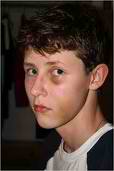“Aspergers” or “High-Functioning Autism” – What Should We Call It?

According to a panel of researchers assembled by the American Psychiatric Association, Aspergers is really just a form of autism and does not merit a separate diagnosis. Even though many researchers already refer to Aspergers as “high-functioning autism,” it hasn't been listed under the autism category in the official diagnostic guide of mental disorders (i.e., Diagnostic and Statistical Manual, or DSM). The DSM serves as a guide for mental health professionals and government agencies. But a new draft fifth edition moves Aspergers officially into the autism category, provoking a wide range of responses among individuals with Aspergers — some of whom say they do not want to be labeled as autistic. Instead of including a diagnostic category for Aspergers, the DSM 5 draft includes traits associated with Aspergers (e.g., difficulty with social interactions, limited/repetitive behaviors) in a broad category called autism spectrum disorder. The intent is to try to make the diag

